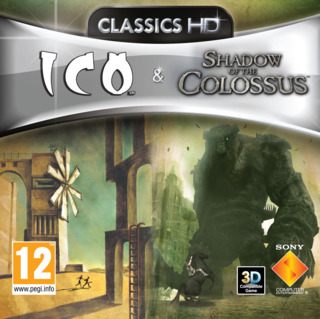Today, I want to talk about a particular game. This game is something I appreciated for its artistic and gameplay merits when I first played it and more recently have come to appreciate for the amazing themes that run throughout its length. The game I am talking about is Shadow of the Colossus, Team Ico’s second game for the Playstation 2 released in 2005. I don’t want to discuss the gameplay, or the visual style, or even the unfortunate technical problems. This post will focus entirely on the (what I feel it is, at least) main theme of the game.
In Shadow of the Colossus, you play as a character named Wander who has travelled to a forbidden land to revive his lover Mono, chasing a legend that proves to be entirely true. A powerful being named Dormin inhabits the temple that he arrives at in the beginning of the game, a being that tells Wander he can return the soul to the one he loves. Of course, nothing so against the laws of nature can be accomplished without a price and the being even warns the protagonist against performing the task this feat requires, not being specific but stressing the dangers nonetheless.
Like any other fool in love, Wander can’t help but immediately set out on the task: kill the sixteen Colossi that inhabit the strange land. Several of these beings are entirely harmless, not attacking the player unless attacked first. It is the player inhabiting Wander that is forced to initiate combat against these more passive Colossi, taking their lives to return another’s. The game makes sure to show the player the results of their choice, making these moments sad and heart-wrenching when they should be feeling uplifted by the victory.
As more and more Colossi fall to the player’s blade, Wander begins to change. It is subtle at first but by the halfway point of the game, his hair and face grow darker as his skin gets paler. By the end of the game, he becomes completely pale-skinned and sprouts two dark horns from the top of his head. It is also at this point that Dormin explains the true meaning of the task the player has just undertaken; each Colossi was a piece of himself and by killing them all, Wander had absorbed the power into himself. Dormin is now able to inhabit Wander’s body, transforming him into a malevolent force, the embodiment of all the violence he had just performed to save the one he loved.
No game (at least that I know of) treats violence in the way that this game does. There are no fodder enemies for the player to mow down on their way to the bosses; there is nothing but the bosses. Each kill in the game is immensely meaningful both to the story and to the player. In any other video game, killing something has become a completely meaningless task, just another point or one step closer to the next level. Shadow of the Colossus manages to put such emotion and importance into each of its sixteen kills that it gives me hope for a future where games invest in putting meaning into death instead of just trying to rack up the body count.

Log in to comment